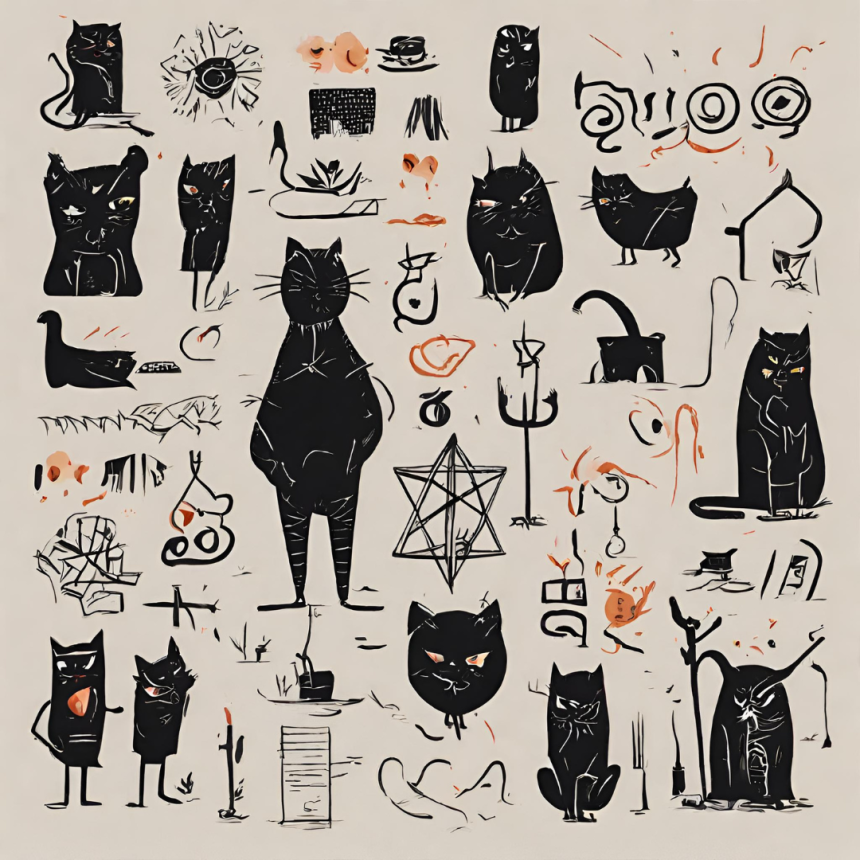Whenever a rare random event occurs, many attempt to attribute the occurrence of such an event to a spiritual force and thus begin an endless round of spiritual permutations birthing all manners of superstitions. Superstitions are not new, they have always been with us since the beginning of time with all human cultures having various forms of superstition. With the advent of science and technology, the numbers of those who believe in superstition and use of the same to interpret random events has reduced, however in certain cultures these superstitions are still seen as the standards through which every event must be interpreted.
Last week a popular Nigerian-Cameroonian actor, Junior Pope and other crew members in a movie production died in a boat accident in an Anambra river while on their way to set. Their death has been interpreted with heavy superstition- a river spirit has been linked to their death. Some have accused a co-actor who survived for ringing a bell while on the river that evoked the spirit of the river to action, a superstition that has made me laugh deeply. A co-actor who survived has linked his survival to the benevolence of the river spirit who he offered Fanta, a Soda drink as an appeasement before embarking on the journey. Whatever these superstitions are, it is greatly believed in a society where spiritualism triumphs over rationality. Some accounts have even reported that the locals insisted that the dead in that incident must be buried by the river to appease the river spirit. A superstition they say has been with them for ages, without which the river spirit will wreak havoc.
Cultural beliefs and Superstition
Superstitions are not new. They have been with us since humans first appeared on earth. In the Iliad and Odyssey written by Greek poet Homer around 75BC several such superstitions of the ancient Greek society revolving around their pantheon of gods were detailed, some, which have been translated to Hollywood epics. The English writer of the medieval period, Shakespeare had had his works laced extensively on the superstition of that age. In Macbeth, he narrated the prevailing superstition of that era on witches. In Africa and many other cultures superstitious beliefs were handed down in folklores and through other forms of art.
Culture plays a significant role in creating superstitions. Culture defines the group thinking and values of any society. Often, dominant environmental objects in a location such as trees, rivers, mountains etc. feature prominently in the religious beliefs of the group in that location. Limited by the scientific explanation for such existence, the group would worship such objects and attribute spiritual powers to these inanimate objects present in their locations. To explain occurrences linked to these objects and sustain the fear and respect for them, superstitions and myths are created. These superstitions are used to create fear and respect. I might be tempted to say that superstition is an elite creation to retain power and influence- somehow, they have survived the era of their creation and has continued to be relevant to this day where another set of elites have continued to use them to remain relevance and expropriate wealth using fear.
I should also say that Superstitions is not just about fear and control, sometimes it can be used for a good. superstitions have been used to create communal bonding and preserve the ecological system. In Igbo societies cultural superstitions have been used to preserve trees and animals such as monkeys and snakes. Superstitions on the existence of the masquerade were used to create and preserve social order and enforce justice long before colonisation.
What drives Superstition
Superstitions are driven by the need to fill knowledge gaps. When events occur, limited empirical understanding on the occurrence pushes the need to explain such events on spirits creates a superstition. Superstitions also exist to match up with an existing perception.
Superstitions arise because of the need to control and influence. In Africa where superstitions are driven by religious groups, the sole purpose of superstitions is to remain relevant and control a certain level of influence. The Psychologist B.F Skinner in his famous pigeon experiment using Skinner box gave a widely accepted reason on the occurrence of supposition. When a random movement meets an expected result, it can be wrongly interpreted as superstition. Suppose that you put up a blue cap on three different occasions and in each of the time you had numerous good fortunes that day, you might associate the blue cap as your lucky charm and associate it with good fortunes, thus creating a superstitious belief around it even though this good fortune was just random.
With the influence of science across the globe many superstitions that have been downgraded while societies with lower educational and human development indices have continued to hold on to superstitions as the only purview through which they can see the world
Impact of Superstition on the society
Superstitious societies do not rely on empirical evidence to find solutions to various events and occurrences. They cloak all events as having a spiritual source of origin. Once superstition is entrenched it becomes a tradition and a feature of that culture foreclosing and need for any empirical analysis of that event. In this way, superstitions limit scientific enquiries- limiting learning experiences for that culture to solve various issues. Superstition limits the evolution of societies. Evolution is a function of knowledge and societies can only evolve based on the quality of information within that society. If superstition takes the place of empirical knowledge then that society can not evolve as there would be no need to challenge the norm and seek knowledge outside that which has become a tradition and the standard.
It took the intervention of the white missionaries to stop the killing of twins in some parts of Nigeria, previously twins were seen as bad omen. It was also empirical knowledge that demystified the superstition around Ogbanje in South East Nigeria. Empirical evidence found that what was seen as Ogbanje was simply a problem of genotype. In Mid-century Europe witches were attributed with all manners of powers leading to various superstitions. The growth of science demystified that and gave room to rational thinking. Hence, rational thinking must supersede the need for guess work. What we refer to as tradition are rules set using obsolete information. As new information trickles in, cultures must substitute that information and create new rules that fills the present knowledge gap, in this way, cultures become dynamic and encourage innovations.
Common Superstitions Belief
popular superstitious beliefs in Nigeria are:
- Udala tree houses ghosts; This superstition comes from the south east Nigeria and it is aimed from stopping children from hanging around the loved udala tree
- A Stone in your mouth stops pains when flogged.
- Throwing your fallen teeth on top zinc roof will make it grow back.
- If a young girl seats on a mortar she won’t grow tall.
- Scratching your right palm signals that money is coming
- Scratching your left palm means debit is coming.
- placing money inside a mortar before conveying it from one place to another will stop it from damaging the vehicle it is in
- Pregnant woman going to see a new born baby causes miscarriage.
- Washing your face with water used to bath a dog will make you see visions.
- Eating the heart of a cat will make you never to die on the road.
Debunking the myths of Superstition
Rational and evidence-based thinking must be prioritised and be the only way through which a society must see and interpret an event. Superstitions have limited the ability of any society to be creative and solve problems. Repetition is validity and guesses based on wild assumptions. If empirical evidence doesn’t not support, please don’t believe it.
like topics on culture read


